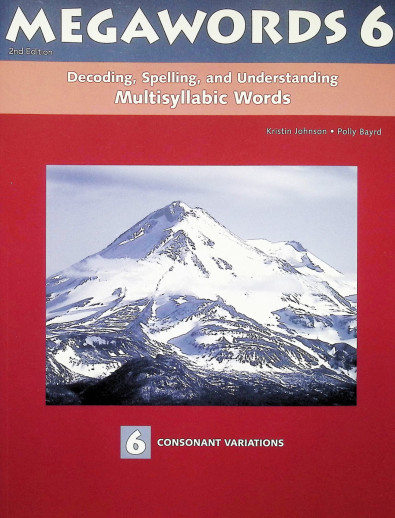We use cookies to make your experience better. To comply with the new e-Privacy directive, we need to ask for your consent to set the cookies. Learn more.
Megawords 6 Student Book 2ED
Book 6 introduces words that contain alternative sounds for the digraphs ch, ph, and qu and for the consonants c and g. It also presents variations for the sound of r-controlled vowels. Exercises include spelling practice, proofreading, crossword puzzles, word finds, fill in the blank, categorizing, sorting, and passage reading for fluency and comprehension.
Skills addressed include consonant variations, List 30: Sounds of ch, ph, and que, List 31: Soft c, List 32: Soft g, and List 33: VrV and VrrV combinations.
Megawords teaches the reading, spelling, and contextual use of multisyllabic words through multisensory instruction and systematic skills progression. It can be used in a variety of settings and across all RTI tiers.
Variations in consonant sounds (ch, ph, qu, soft sounds of c and g, modified long-vowel sounds of r-controlled vowels in VrV and VrrV patterns). 433 words.


word list for decoding
needed to complete my set
My daughter is dyslexic and this curriculum is the one that seems to work best for her. She has enjoyed the first 5 books in the series.